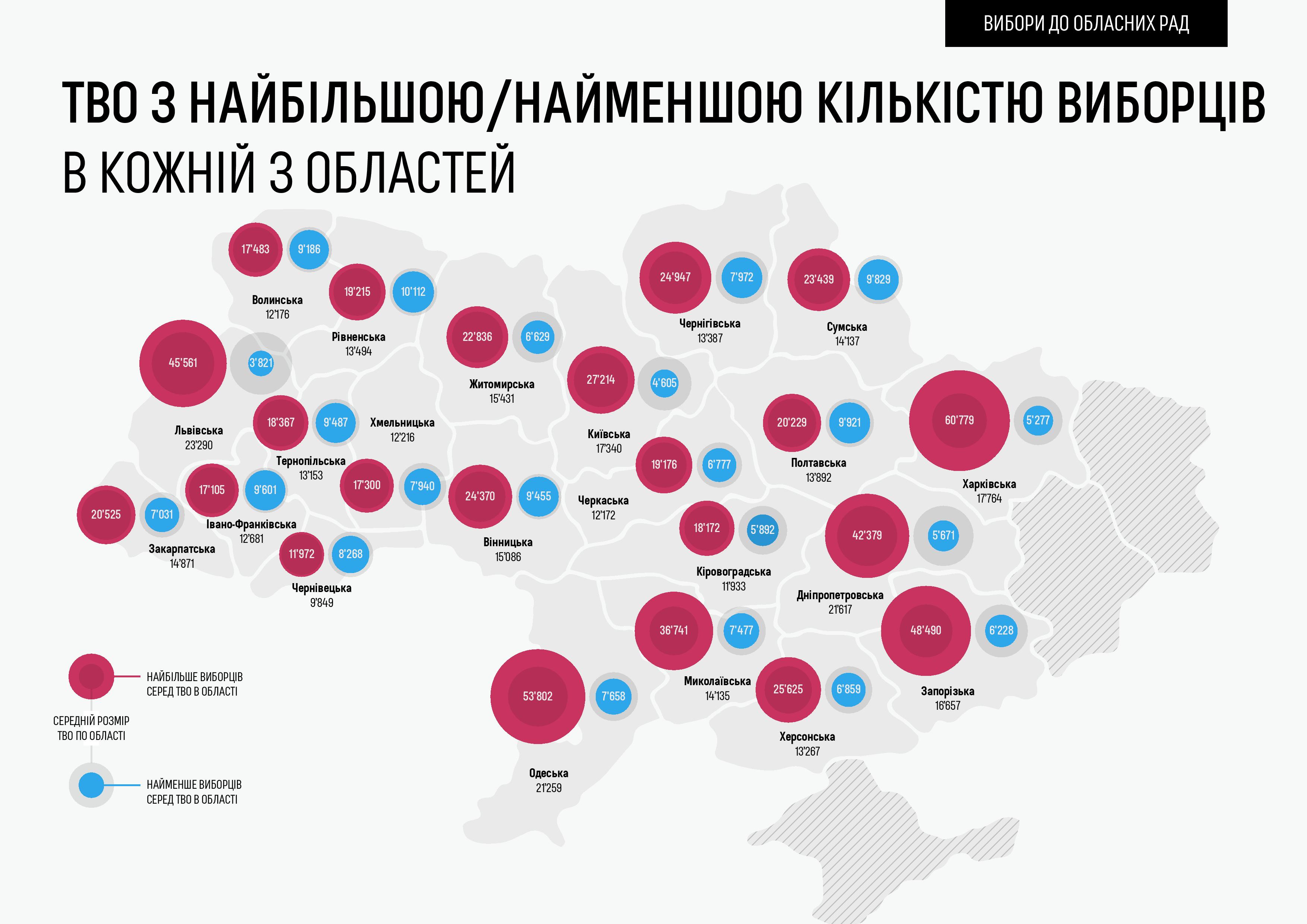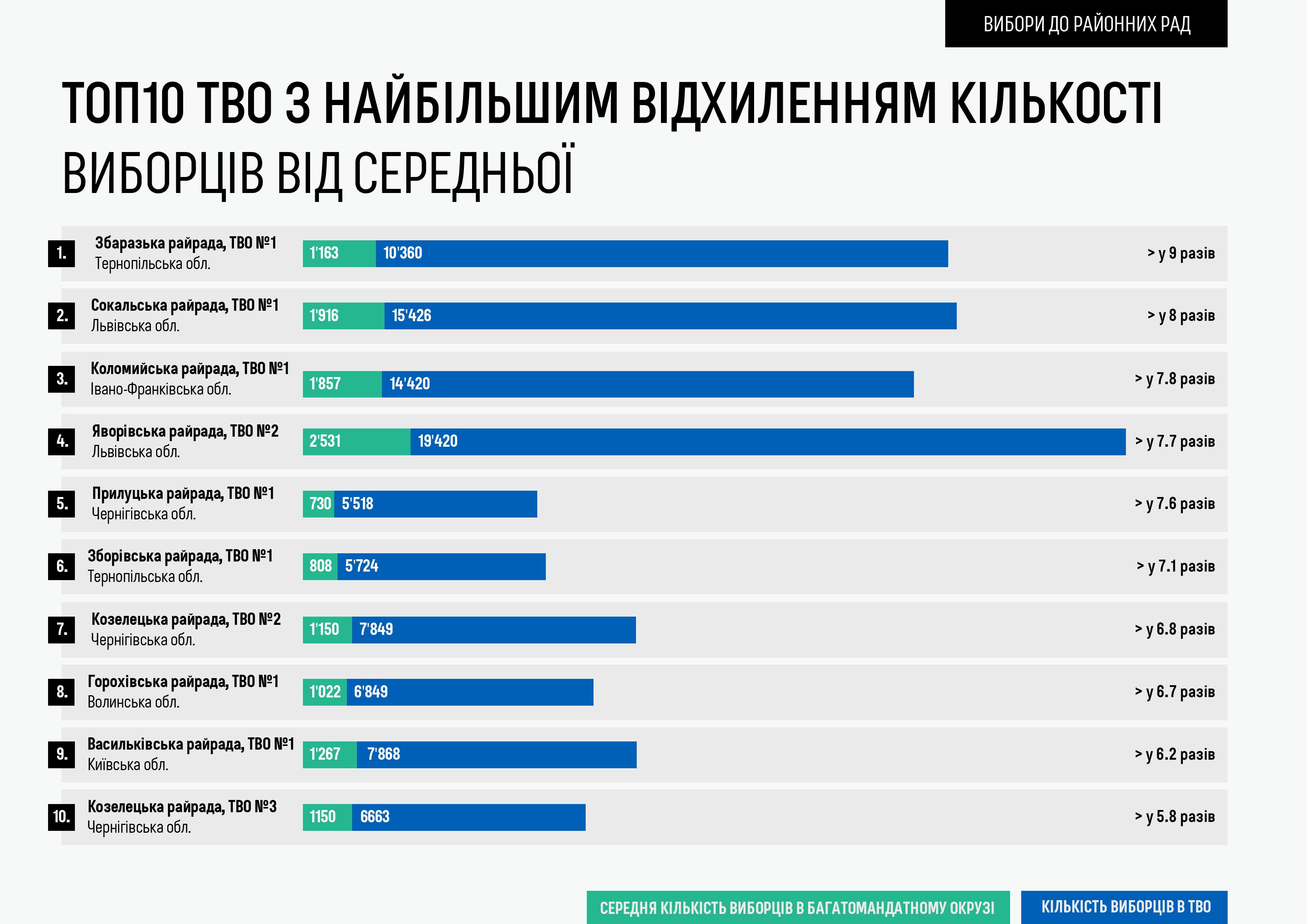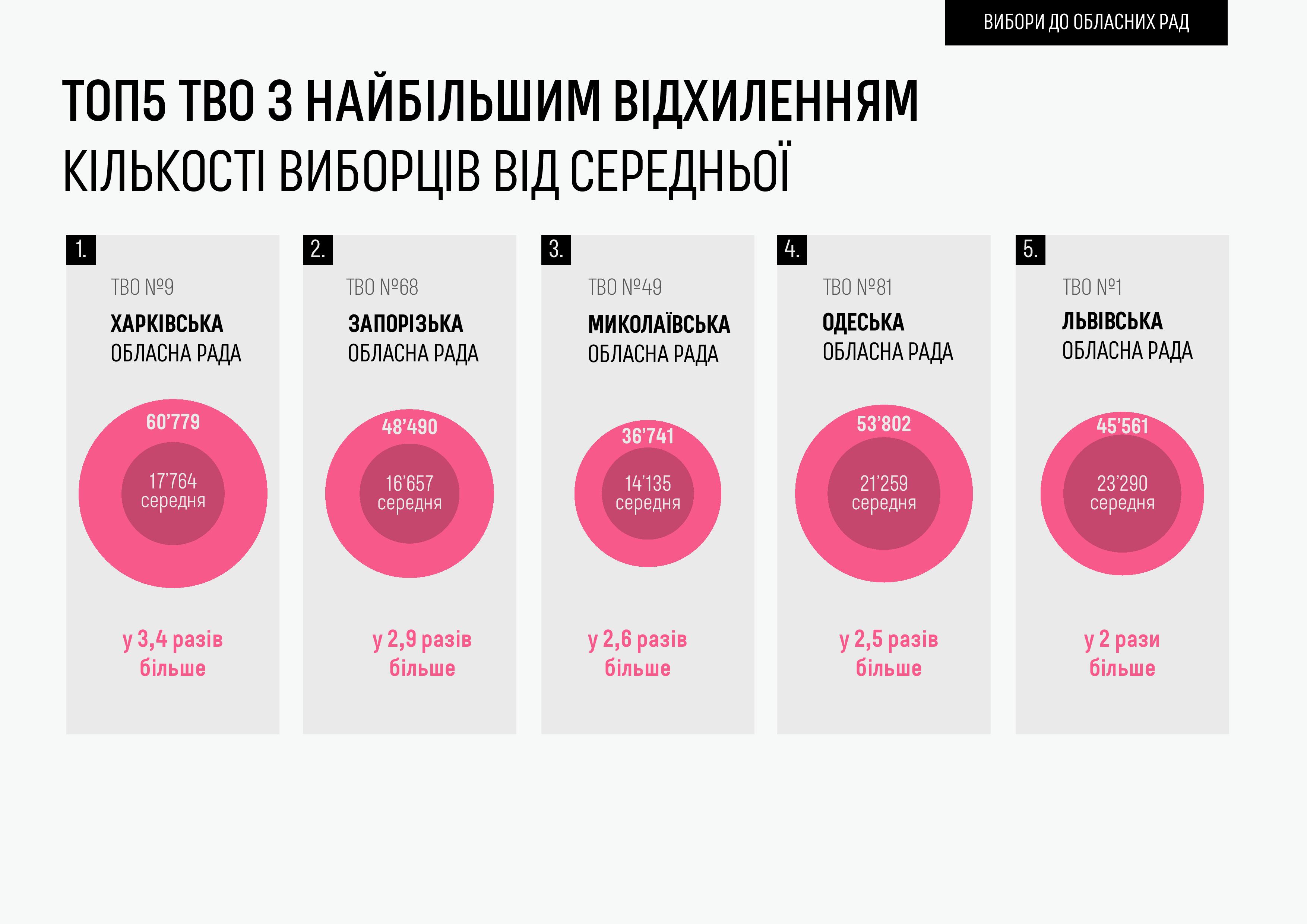142 of 294 Ukrainian political parties have approved participation of their local organizations in regular local elections, and 51 of them have started campaigning before official registration of candidates. Potential candidates and local party cells widely disseminate goods, provide free services, organize infrastructural, social, and charitable projects. Such conduct violates the principle of equal opportunities. There are special concerns about restriction of media access to conferences organized by local party cells of the Opposition Bloc, Nash Krai, and Svoboda, as well as about illegal removal of a journalist from Dnipropetrovsk City Election Commission's meeting by unknown armed people.
According to OPORA, 51 parties have started campaigning with varying intensity in Ukrainian regions as of 27 September. 11 political parties has launched nationwide campaigns (in more than 5 regions) related to participation of their cells in local elections, and 40 more parties have spread their activities over 1-5 regions of Ukraine.
Olha Aivazovska, Electoral and Parliamentary Programs Coordinator at the Civil Network OPORA, has stated: “Similarly to 2010 local elections, potential candidates and local party cells, which haven't officially registered as electoral subjects yet, widely disseminate goods, provide free services, organize infrastructural, social, and charitable projects (Kyiv city and oblast, Odesa city, Vinnytsia oblast, Cherkasy oblast and other regions). However, after official registration of candidates such activities would be classified as voter bribery falling under the criminal code.”
Oleksandr Kliuzhev, Analyst at the Civil Network OPORA, has emphasized: “Observers have noticed that officials at local self-government bodies and current local councils, with representatives of every parliamentary party and a lot of non-parliamentary parties among them, are increasingly active in realization of social and infrastructural projects which are directly or indirectly related to the election process”. The expert has provided some examples:
- Members of Kyiv City Council use 2015 local budget funds intended to address citizen needs (according to the corresponding city program, each Member of City Council receives 500 thousand UAH to address citizen needs);
- activities of Kryvyi Rih City Mayor Yurii Vilkul related to local infrastructure projects are widely covered by the media;
- infrastructural projects of Odesa City Council are presented as activities of the Doviriai Dilam party (Trust Deeds), which have nominated the current Mayor Hennadii Trukhanov for mayoral election;
- local project “Yard in Mykolaiv”, financed from the local budget, is used by the City Mayor Yurii Hranaturov for advertising purposes while he's nominated in the upcoming mayoral election by the Nash Krai party.
We have noticed the following peculiarities of nomination and registration of candidates for members of local councils:
- Regulations of the Law on Local Elections concerning gender quotas are not observed fully(a minimum of 30 percent of each gender on an electoral list of candidates for members of local councils in multi-mandate election districts; Article 4 (3) of the Law of Ukraine on Local Elections);
- mass media representatives are sometimes barred from attending conferences of local party cells (incidents were noticed on meetings (conferences) of the Opposition Bloc political party (Volyn, Kirovohrad, Dnipropetrovsk, Zaporizhia, Zhytomyr and Khmelnytsk oblasts), Nash Krai party in Mykolaiv oblast, and AUU Svoboda party in Ternopil oblast;
- some incidents when registration of candidate list was refused:
- Nash Krai party nominating candidates for members of Zaporizhia Oblast Council (28 September);
- Opposition Bloc party nominating candidates for members of Berdiansk City Council (28 September);
- 12 candidates of the Party of Free Democrats nominating candidates for members of Cherkasy City Council (27 September).
Excessive departures from average number of voters in territorial districts are quite widespread because of poor legislative regulation and impossibility to secure proper oversight by the CEC. As a result, almost a half of territorial election districts drawn for election of oblast council members have more than 15% deviation from the average number of voters in districts (taken as admissible in accordance with the Venice Commission recommendations). 2/3 of districts drawn for raion council elections have such excessive number of voters. The highest departures from averages within a multi-mandate district reaches 790% for raion councils and 240% for oblast councils. Thus, commissions have violated the principle of equal voting rights.

As of 28.09.2015, 793 election commission members (around 8% of the total membership in these election commissions) were substituted in oblast TECs, city TECs in cities of oblast significance, raion TECs, district TECs in Kyiv city since their formation (6 September 2015). The following electoral subjects have substituted the highest number of commission members: New Policy party (33.7% of their TEC members), Civic Position (14.8%), People's Front (10.2%), UKROP and People's Party (9.8% each). Rotation of TEC members in much lover if compared to rotation of DEC members in 2014 early parliamentary elections in Ukraine and, therefore, doesn't threat their stability.


For comment, please contact:
Olha Aivazovska, 063 617 97 50
Parliamentary monitoring | Website | Facebook | Twitter
(#вибори2015; #elect_ua; #opora; #опора)
Reference:
Civil Network OPORA conducts citizen observation of local elections in Ukraine, scheduled for 25 October 2015. Civic monitoring conducted by OPORA - is a type of network activity, aimed at impartial assessment of the preparation and conduct of elections, as well as preventing electoral violations through comprehensive civic action. 144 long-term observers were deployed to all Ukrainian regions on 5 September, and 3000 short-term observers will join them on the election day.